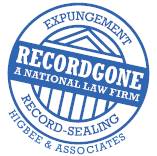In Michigan, former offenders that have served their time, completed their sentence, and paid their debt to society may still be serving what is known as the “invisible sentence,” which has the potential to last a lifetime. New proposed legislature, House Bill 4186, would make more people serving the “invisible sentence” eligible for expungements.
The Michigan Invisible Sentence
The invisible sentence refers to the consequences that are imposed in a former offender’s everyday life long after they have completed their sentence and paid their debt to society. The invisible sentence can hinder a person’s ability to obtain employment, housing, education, and licensing. It is the stigma that surrounds a person when they have a criminal conviction on their record. The invisible sentence does not pay heed to a person’s rehabilitative factors. The invisible sentence does not account for the person’s need to support themselves or their family. It increases the chance of recidivism by disallowing a former offender to reintegrate him or herself into society and seek the education, employment, and housing that society deems necessary to be considered a productive citizen.
Expanding Expungement to Overcome The Invisible Sentence With HB 4186
Soon there may be hope for those who have become rehabilitated, but are still laboring under the invisible sentence. New legislature, Michigan House Bill 4186, introduced by Representative Stacy Erwin Oakes, seeks to expand the eligibility for expungement so that those who have paid their debt to society may move forward with their lives without the shame and stigma of a conviction on their record. The Bill would allow for up to two convictions (either a felony and a misdemeanor, or two misdemeanors) to be expunged from a former offender’s record after a waiting period of five years starting from the date of completion of sentence. The current law only allows for the expungement of one conviction.
Opposition to House Bill 4186
Some have voiced concern that the Bill favors the offender over the welfare of society; however, the Bill does not allow for the expungement of offenses for domestic violence, offenses of a sexual nature, stalking, or drunk driving, nor does it allow expungement for crimes that are punishable by life in prison. It does not expand eligibility to more serious offenses, but rather allows for more convictions of a less serious nature to be expunged once a person can prove that they have indeed become rehabilitated.
HB 4186 Will Allow Reintegration Back Into Society
If passed, this Bill will release many from the bonds of their invisible sentence. It will allow former offenders to obtain the education and licensing that they need to be reintegrated into society. It will allow them to obtain higher-paying positions, and support their families. The Bill will allow many to purchase a home for the first time without the fear that their conviction will hinder their ability to do so. Increased potential for employment will reduce the chance that former offenders will return to criminal behavior to make ends meet, and the Bill will reduce the rate of recidivism in Michigan and it offers a second chance to many.




4 Responses to House Bill 4186 Could Lessen The Effect of the Invisible Sentence in Michigan